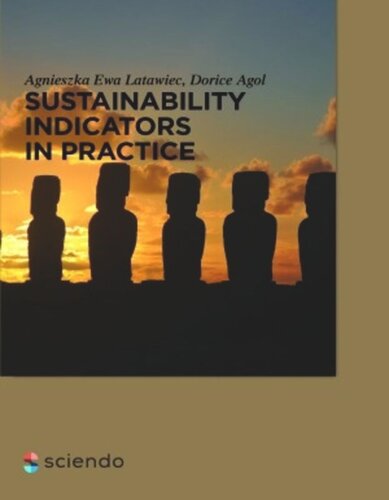

Most ebook files are in PDF format, so you can easily read them using various software such as Foxit Reader or directly on the Google Chrome browser.
Some ebook files are released by publishers in other formats such as .awz, .mobi, .epub, .fb2, etc. You may need to install specific software to read these formats on mobile/PC, such as Calibre.
Please read the tutorial at this link: https://ebookbell.com/faq
We offer FREE conversion to the popular formats you request; however, this may take some time. Therefore, right after payment, please email us, and we will try to provide the service as quickly as possible.
For some exceptional file formats or broken links (if any), please refrain from opening any disputes. Instead, email us first, and we will try to assist within a maximum of 6 hours.
EbookBell Team

4.8
34 reviewsThe goal of sustainable development is to meet the socio-economic and environmental objectives without comprising the needs of future generations. Since the Rio Summit of 1992, the concept of sustainability has captured our imaginations and aspirations and efforts to develop its indicators have increased. A range of sustainability indicators have been developed within various socio-economic, environmental and cultural contexts- including biodiversity, economy, energy, water, land use and transport. Sustainability indicators are widespread in international development arena. They have become popularized among governments, non-governmental organizations, private sector and the wider public.
Based on multiple cases across the world, this book explores opportunities and challenges associated with the practical application of sustainability indicators. The book reflects diversity of professionals of inter-disciplinary backgrounds covering contemporary issues within different socio-economic and environmental contexts. Each chapter presents practical examples of the merits and challenges of using sustainability indicators and draws conclusions and lessons learned. The book targets a range of audience from students, academics to development practitioners and policy-makers.
The two editors of this book: Dr. Agnieszka Ewa Latawiec and Dr. Dorice Agol are inter-disciplinary scientists who both have experience in research at the environmental conservation and development nexus.